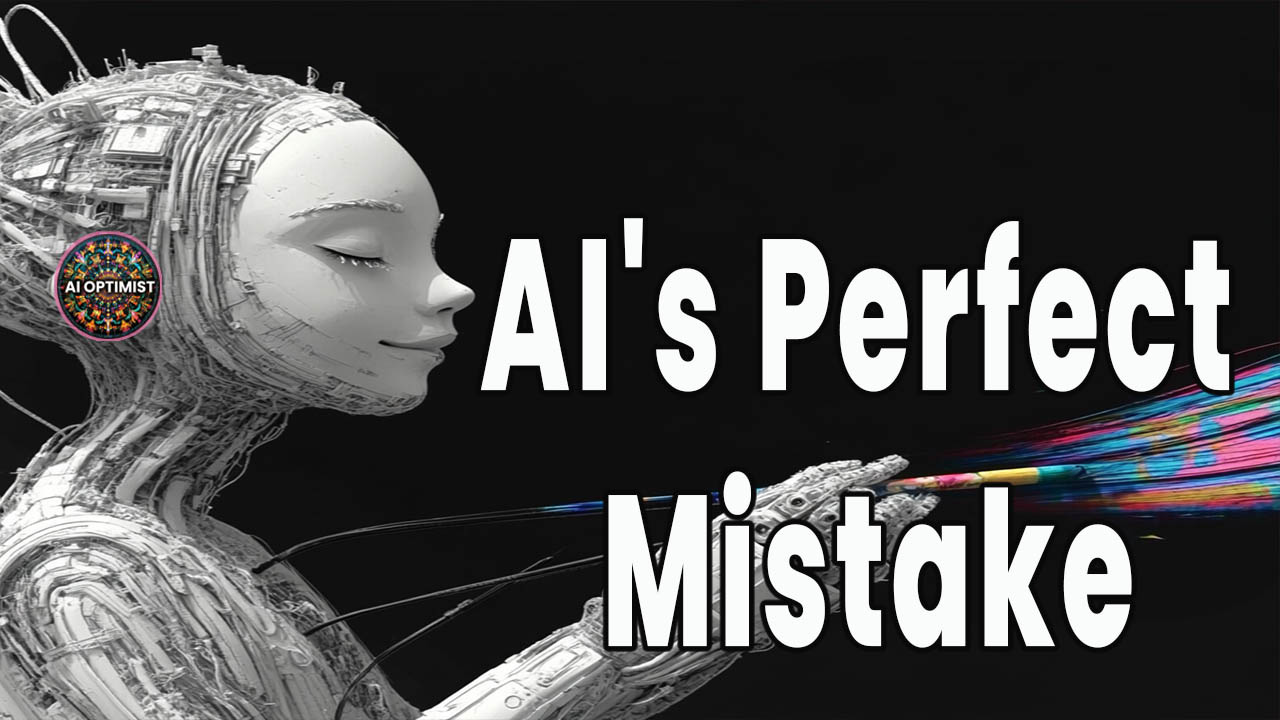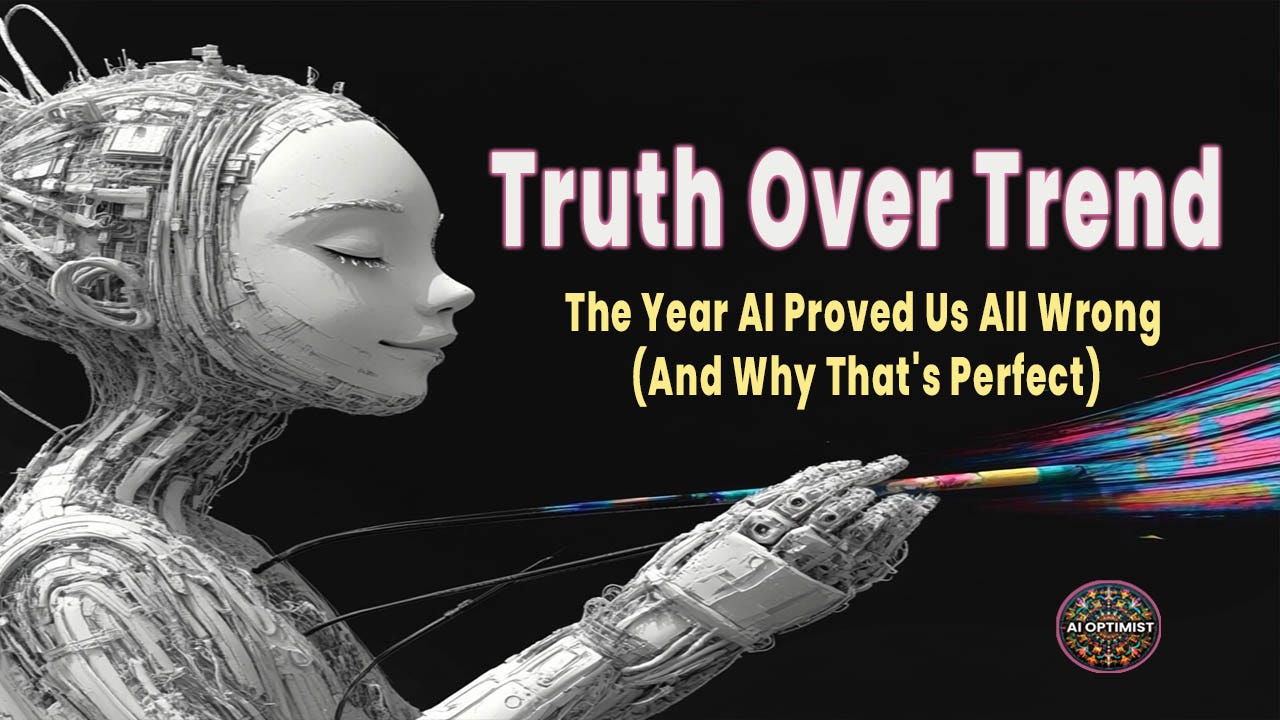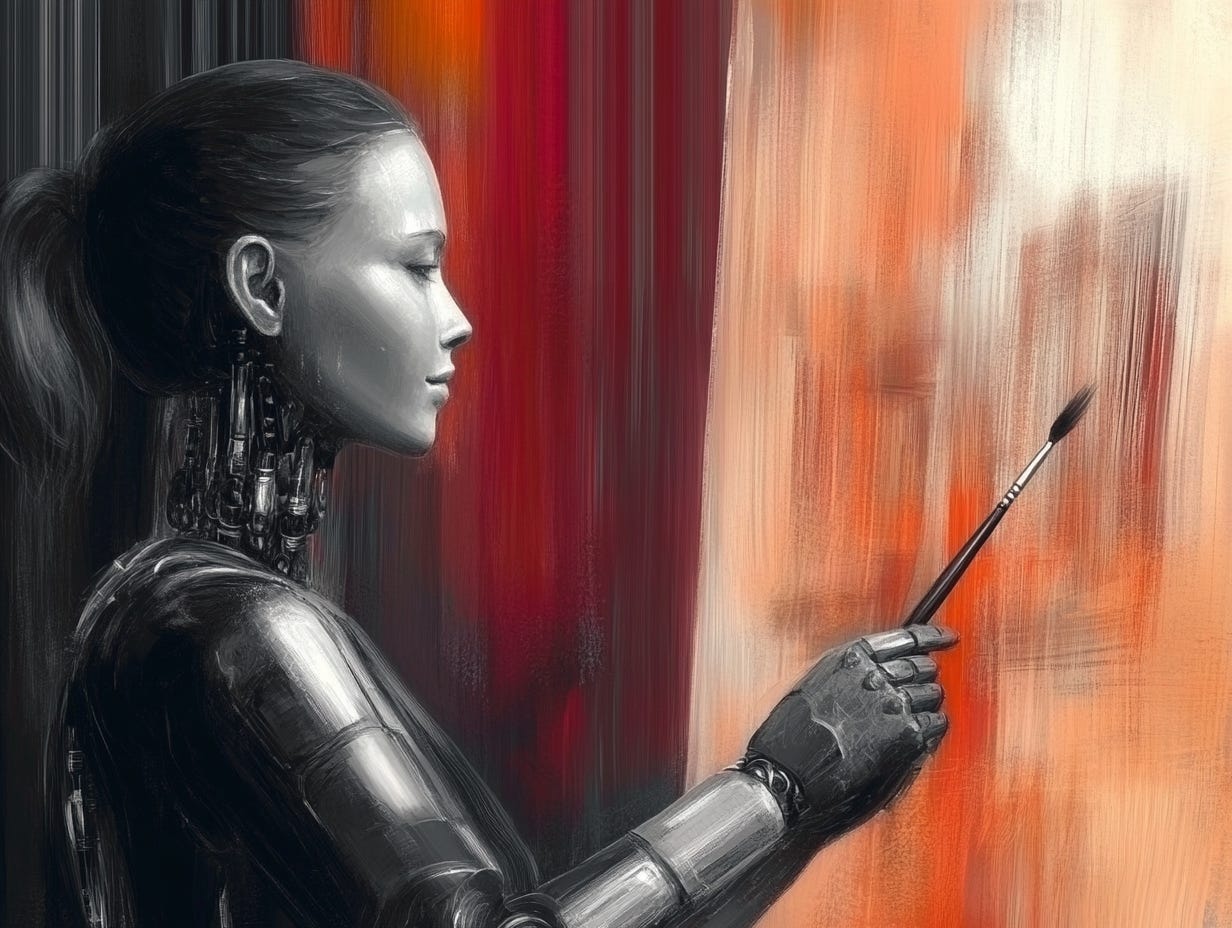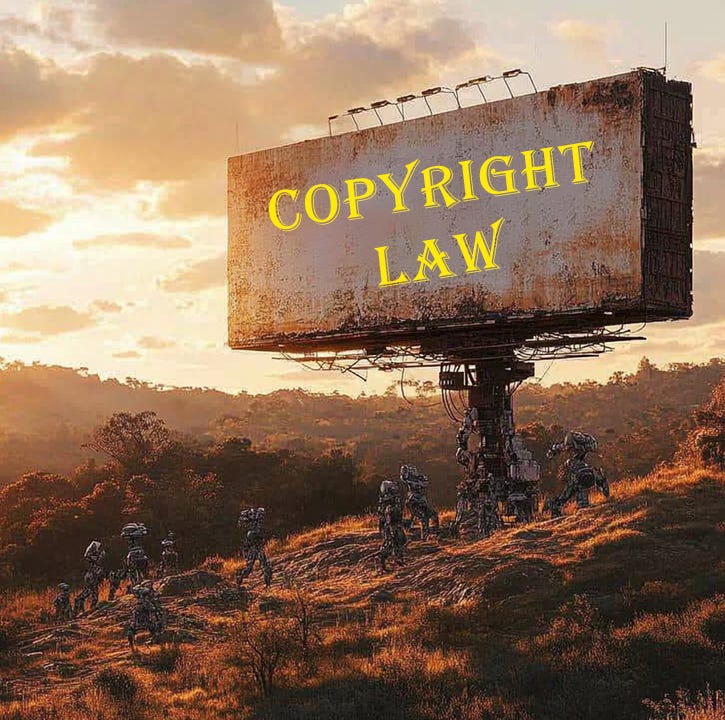What I love most about covering AI this year? You learn way more by failing.
Robert A. Heinlein:
"Don't ever become a pessimist… a pessimist is correct oftener than an optimist, but an optimist has more fun."
Last Episode in 2024: The AI Optimist returns January 3, 2025
Those moments where we got it completely wrong - those 'wait, what?' moments that forced us to stop and really think.
This final episode of 2024 is more than just a year in review.
To every listener who's joins me in questioning assumptions, challenging conventional wisdom, and staying optimistic even when the headlines turn grim: thank you.
Your questions and insights make this not just about understanding AI, it’s also about understanding how we adapt and grow alongside it.
Whether it was watching copyright law try to defend against AI with stone walls (spoiler: AI has wings and the legal lead), or seeing brilliant engineers get ghosted because they couldn't stop talking tech instead of ROI and privacy, or catching Silicon Valley's 'oops, did we say that out loud?' Eric Schmidt moments –
nobody's got this figured out. We're all just trying to read a map that keeps morphing into something new.
Here’s some AI Assumptions turned upside down in 2024.
The ones that made us question everything we thought we knew about AI.
And by the end... well, I've got a story about one of my own epic misses this year.
Being wrong taught me more than being right ever could.
And I’m so not alone. Time to dive in..."
Early AI, Big Ideas: Dancing with Grifters
In any new technology, belief opening inventions come out side by side with grifters selling the promise and not delivering. Who it is in AI we’ll know in a few years.
Early 2024 look at AI
When I launched The AI Optimist podcast, I made a promise to myself and my listeners: stay curious, remain honest, and admit when I get things wrong.
As we close out 2024, I'm keeping that promise in a big way with our final episode of the year – one that challenged everything I thought I knew about artificial intelligence.
Throughout this year, we've seen the collapsing castles of copyright law, peeked behind Silicon Valley's members-only curtain, and watched engineers learn that speaking "human" matters more than speaking "tech." AI adoption is slow as pipe dreams become reality.
We've felt the struggles of creators fighting for recognition in an AI-driven world, and seen how the race for data is reshaping our digital landscape.
But through it all, one thread kept emerging: the MVI - most valuable insights - often came from mistakes, not the rarer success.
The Copyright Conundrum: When Old Laws Meet New Technology
The year began with a slap to creative faces about copyright law. That old law simply can’t keep up to what we do, create, and invent.
Before we can understand where AI is heading, we need to look at how it's challenging our assumptions about ownership and creativity.
Let's start with copyright law - a system that worked beautifully for centuries, until AI came along..."
"Copyright law looks like a castle built to protect books, stone walls, drawbridges, guards at every gate... Then AI showed up. Not with battering rams, but with wings. And suddenly our castle walls became sort of irrelevant."
This metaphor captures the first big lesson of 2024: we don't need better copyright laws – we need an entirely new system:
- LLMs use fair use arguments to justify training on copyrighted content
- Traditional copyright enforcement can't keep pace with AI's ability to transform content
- The "Sue and Hope" model isn't working for creators or platforms
- Small creators are being left behind while tech giants battle in courtrooms
Help may be on the way:
- Attribution and recognition systems built into AI platforms
- New monetization models that compensate creators for AI training data
- Blockchain-based content tracking and compensation systems
- Community-driven content models
When Silicon Valley Shows Its Hand
Silicon Valley isn't waiting around. In fact, when Eric Schmidt accidentally revealed the industry's real attitude toward creators' rights, it showed us exactly how Big Tech views this brave new world...
Perhaps the most surprising moments of 2024 came Eric Schmidt and other tech leaders real AI talk – moats, conquer, steal, and sue if you win - was released for us to listen, or not.
The industry's approach to AI training data – taking first, asking questions later – became impossible to ignore.
Creators were never asked, never paid, never considered. Even though Midjourney had a list of 4700 of them. Lawsuits flying from all corners, from groups of artists to the New York Times and Getty.
But the old copyright law, based on paper and sometimes 100 years of ownership, will change.
Behind the scenes we learn:
- Tech companies' "steal first, lawyer up later" approach to data
- The discovery phase of recent lawsuits reveals internal discussions about copyright
- Companies knew they were using copyrighted material but proceeded anyway
- The disconnect between public statements about ethics and private business practices
- How metadata from creators was intentionally ignored
- The real cost of "free" training data on the creative economy
“Explain AI to me like I’m a 5 year old”
Speaking Human in a B2B World
One of the year's most practical lessons came from running an AI Business. A common early tech assumption is that you’re selling technology, when you’re asking people to change.
Watching engineers and developers learn the hard way that technical excellence isn't enough. ROI and privacy undermine many AI businesses gaining clients; in these early days few can trust AI.
Moving out of the AI engineer echo chamber and into business applications, we discover from Jonathan Khorsandi of Diwy.eu:
“Because they're so brilliant in engineering and technology and product development, it blows my mind how they think through that... but they don't really speak sales that well."
That episode is one of the most popular in 2024, answering a question few ask.
How do we speak to customers and close deals, when many think the technology is the key.
It’s always the implementation, and tech is never easy. Except maybe for Keebo.ai which installs in 30 minutes and delivers results in 24 hours.
Practical lessons learned:
- Engineers need to focus on discovery before diving into demos
- The SPIN framework helps tech companies communicate value
- Success stories from companies shifting from feature-focus to solution-focus
- How AI tools can help bridge the communication gap
- The importance of understanding customer problems before showcasing solutions
The Data Behind the Dreams: Quality Over Quantity
A recurring theme throughout 2024?
AI's hunger for data isn't sustainable under current models.
We've been scraping data for free. None of these businesses have any licensing cost associated with it.
They assume they can take it for free and charge us. This realization has pushed the industry toward an inflection point:
- The emerging "mad cow disease" problem of AI training on AI-generated content
- Why more data isn't always better data
- The growing scarcity of quality human-generated content
- How data quality affects model performance
- The need for sustainable data sourcing strategies
- The real cost of "free" data on model quality
As AI companies race to build bigger models, they're facing a problem: they're running out of quality data.
And that's forcing us to ask some uncomfortable questions about AI's future...and why AI and creativity depend on each other in a way neither side wants to accept in 2024.
The Bubble That Almost Was?
When I started this year predicting an AI bubble burst in 2024, I thought I had it all figured out. But that's the beauty of being wrong - it forces you to look deeper, to understand why.
My timing is off, still the indicators are all around.
How many times do we go through this, then find out the seedy side of the business explodes, while the legit folks keep trudging along inventing new ways to use AI.
When the crash happens and I know this from experience, most will run away and call it a fad... And that's where the real revenue happens.
The opportunity is in the crash and most of us expect it sometime in 2025. While we don’t know when it will happen, we know it will happen.
Recognizing this means keeping enough cash on hand to survive a winter in the AI market.
Many good companies will be acquired to cease to exist because they are waiting for more money.
Cracks appear in 2024 financially, though the sheer volume of money in this space, the control of Big Tech, and the influence of Big Tech on the US government in 2025 may blow those cracks open, or delay them as more money rides in.
Historical pattern reminders:
- Parallels with the dot-com bubble and crypto winter
- How value was created after previous tech bubbles burst
- Signs of market maturity versus speculation
- The role of venture capital in creating and sustaining bubbles
- Why the real opportunities emerge post-bubble
- Lessons from previous technology transitions
What Makes These "Mistakes" Perfect
Mistakes remind us that no matter how amazing the technology – it's about how people use it, adapt, learn, and grow alongside it.
Progress happens when we focus on solving human problems, not just technical ones.
Being wrong forces you to dig deeper than being right ever could.
Each "mistake" we've covered this year - from my premature bubble prediction to the tech industry's stumbles - reveals AI's real impact.
These were windows into how new technology takes root.
Through trial, error, and adapting:
- Failed predictions help us understand markets better
- Communication gaps drive better tools
- Data limitations push us toward sustainable solutions
- Copyright challenges spark new compensation models
- The bubble delay allows for better infrastructure development
Looking Forward: After AGI
While we've spent 2024 chasing AGI predictions and debating regulation, the real AI impact is happening in small businesses figuring out practical applications, in creators finding new ways to work with AI instead of against it, and in developers learning to speak human instead of tech.
The future of AI isn't in the headline-grabbing predictions or the doomsday scenarios - it's in the quiet shifts happening under the distraction of hype:
- New creator compensation models
- Improved communication tools for technical teams
- Viable data sourcing strategies
- User-centric AI development approaches
- Focus on practical solutions over hype
For entrepreneurs and creators:
- Focus on solving real problems, not chasing trends
- Build solid data strategies from the start, platform agnostic
- Invest in onboarding and retention, which means clear communications
- Prepare for the post-bubble opportunity
- Remember, being wrong can be the best teacher, as long as you pivot.
As we head into 2025, The AI Optimist remains optimistic – not because AI is perfect, but because we're finally asking the right questions and learning from our mistakes.
After spending a year and a half deep in the weeds, talking to creators getting squeezed by AI, entrepreneurs trying to build with it, and yes, even the skeptics who keep us honest - could I still genuinely be optimistic?
Despite grifter AI promises or startup valuations, because of what's happening? Turns out, absolutely yes.
The real story of 2024 isn't about technology - it's about the people trying to figure it out, mess up, learn, and try again.
The bubble may burst, copyright laws may evolve, and business models may transform, one thing remains constant: the human capacity to learn, adapt, and create something better.
Thank you for being part of this journey through 2024.
We'll be back on Friday, January 3rd, ready to explore, learn, and answer your questions, send them in.
We’ll be focusing more on Copyrights, getting creators paid, and trust. Should keep us all busy, finding ways to let AI organize and help us communicate better.
Stay optimistic, everyone – when the bubble bursts, opportunity begins.



















